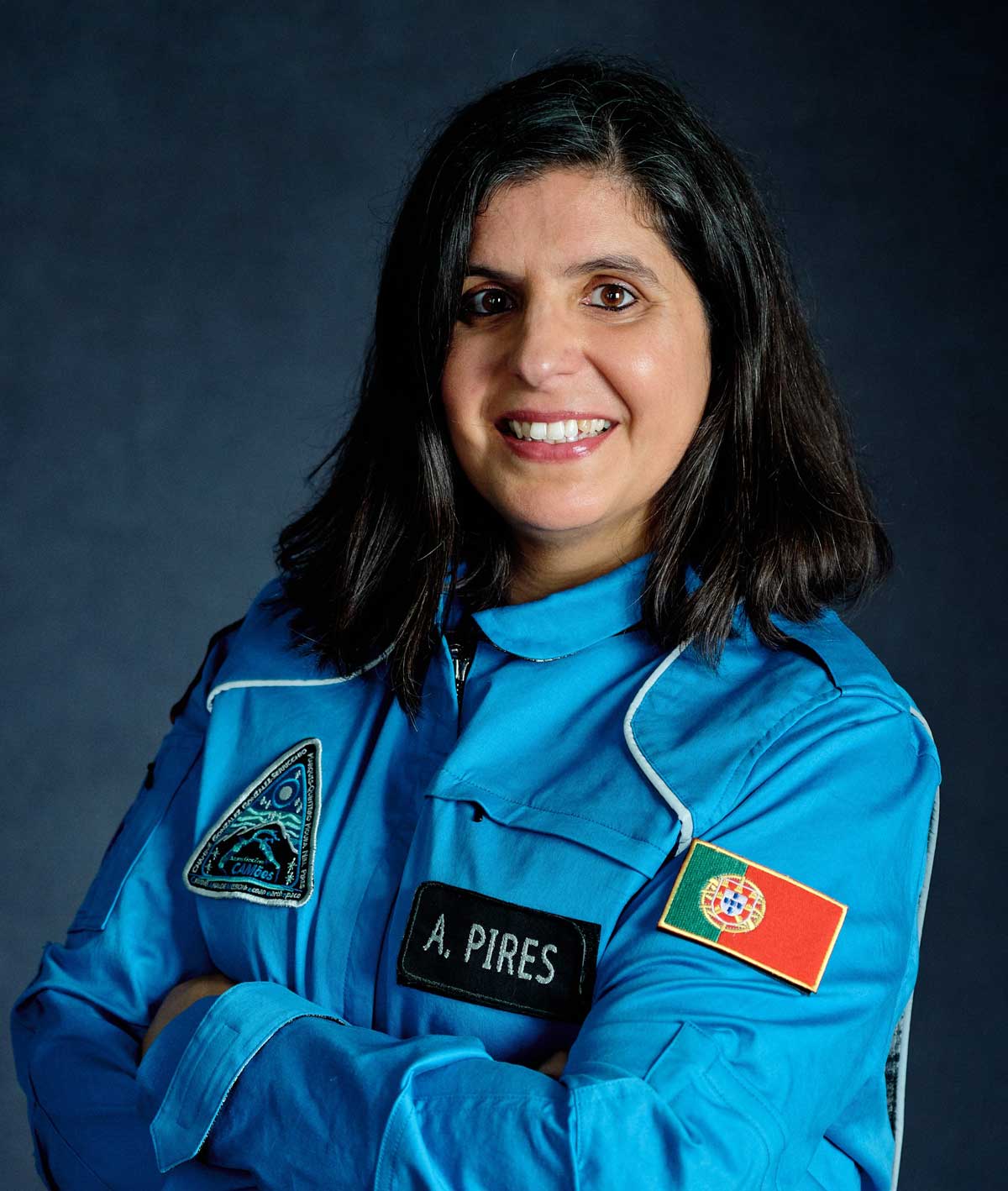Ana Pires
Researcher at INESC TEC, Commander of the CAMões mission, Astronaut Scientist

Ana Pires is a researcher at the Centre for Robotics and Autonomous Systems of INESC TEC. Her research mainly focuses on Space-Earth-Marine interaction, Space Resources, Space Mining, geotechnics, geophysics, and the development of geotechnologies or georobotics for space exploration.
She was the first Portuguese woman to complete the Astronaut Scientist Program as part of the "Polar Suborbital Science in the Upper Mesosphere" Project of the International Institute for Astronautical Sciences (IIAS), supported by NASA Flight Opportunities. She is passionate about exploring extreme environments and is a fellow member of The Explorers Club. Additionally, she is a diver (SSI Certification) and was the Crew Scientist of the "Pegasus" team (Crew 281), which carried out a 2-week analog mission in May 2023 at the "Mars Desert Research Station" (MDRS), located in Utah (USA). The station is owned and managed by the Mars Society.
Since 2018, Ana Pires has been promoting human spaceflight, astrogeology, technology, robotics, and STEAM outreach activities in Portugal. She was the leader and commander of the CAMões project (Caving Analog Mission for Ocean, Earth, and Space exploration), which was the first Lunar analog mission in Portugal that occurred inside the Gruta Natal (Terceira Island) for one week in November 2023. Pires has also been exploring the newly formed lava tubes in La Palma (Canarian Islands, Spain), carrying out science, and performing high-resolution scans to develop 3D models of these structures.
In January 2024, Ana Pires won the Science and Technology category of the Women 3.0 Awards, an initiative of the G100 Club, Communication & Advocacy Wing, in collaboration with Diplomacy & Business Magazine. The awards aim to "celebrate women who exhibit exceptional leadership and remarkable achievements" and "foster significant" and inspiring change. Pires has tried to promote human space flight, astrogeology, technology, robotics, and STEAM outreach activities in Portugal.
She was the first Portuguese woman to complete the Astronaut Scientist Program as part of the "Polar Suborbital Science in the Upper Mesosphere" Project of the International Institute for Astronautical Sciences (IIAS), supported by NASA Flight Opportunities. She is passionate about exploring extreme environments and is a fellow member of The Explorers Club. Additionally, she is a diver (SSI Certification) and was the Crew Scientist of the "Pegasus" team (Crew 281), which carried out a 2-week analog mission in May 2023 at the "Mars Desert Research Station" (MDRS), located in Utah (USA). The station is owned and managed by the Mars Society.
Since 2018, Ana Pires has been promoting human spaceflight, astrogeology, technology, robotics, and STEAM outreach activities in Portugal. She was the leader and commander of the CAMões project (Caving Analog Mission for Ocean, Earth, and Space exploration), which was the first Lunar analog mission in Portugal that occurred inside the Gruta Natal (Terceira Island) for one week in November 2023. Pires has also been exploring the newly formed lava tubes in La Palma (Canarian Islands, Spain), carrying out science, and performing high-resolution scans to develop 3D models of these structures.
In January 2024, Ana Pires won the Science and Technology category of the Women 3.0 Awards, an initiative of the G100 Club, Communication & Advocacy Wing, in collaboration with Diplomacy & Business Magazine. The awards aim to "celebrate women who exhibit exceptional leadership and remarkable achievements" and "foster significant" and inspiring change. Pires has tried to promote human space flight, astrogeology, technology, robotics, and STEAM outreach activities in Portugal.
We use cookies to give you the best online experience. By clicking "Accept" you are letting us know you agree to essential cookies.

